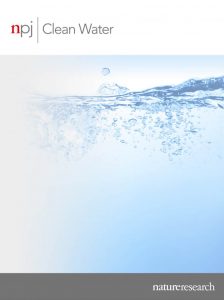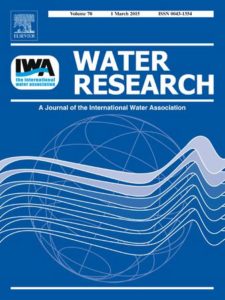Project
Last Updated on November 16, 2022
The Humanitarian Water Lab find ways to get safe, healthy water to vulnerable people in humanitarian crises and resource-constrained settings around the world. We work with people affected by crises and frontline responders to identify critical gaps in knowledge and practice wherever water intersects with human health. We bring together people with the right kinds of expertise and experience to catalyze transdisciplinary research; design, test, and refine solutions, and translate research to change real-world practice, all with the aim of helping to improve health, well-being, and dignity of vulnerable people. The Lab has three core areas of activity:
- Critical problem-solving research on pressing water and health challenges;
- Training and professional development on water, sanitation, and hygiene (WASH) in emergencies; and
- Convening international events to advance the humanitarian water engineering research agenda.
Selected Research Initiatives
- Safe Water Optimization Tool: Advanced water quality data analytics for ensuring water safety and protecting public health in humanitarian emergencies: https://www.safeh2o.app/
- Chemical water quality and potential health effects for children with severe acute malnutrition: e.g., https://f1000research.com/posters/8-603
- Sub-chronic health risks for vulnerable populations due to disinfection by-products in water systems in Canada and humanitarian and LMIC settings (new)
- Linking water quality, microbiological indicators, and epidemiological data using machine learning to create predictive waterborne disease risk management tools (new)
Selected Training & Professional Development Initiatives
- Humanitarian Water Engineering Intensive Course: https://www.yorku.ca/dighr/project/hwe/
Selected Events Initiatives:
- Emergency Data Science—Taking Advantage of the Data Flood 2018: An international workshop on building humanitarian decision-making tools in the age of big data: https://emergencydatascience.org/
- Is Humanitarian Water Safe? Pt. II (new): A ten-year follow-up to the 2011 Is Humanitarian Water Safe to Drink? Event convened by Médecins Sans Frontières: https://www.msf-crash.org/en/publications/medicine-and-public-health/humanitarian-water-safe-drink
Selected Research Outputs

De Santi, M., U. T. Khan, M. Arnold, J. Fesselet, and S. I. Ali (2021). ‘Forecasting point-of-consumption chlorine residual in refugee settlements using ensembles of artificial neural networks,’ npj Clean Water, 4 (35). doi: https://doi.org/10.1038/s41545-021-00125-2

Ali, S. I., S. S. Ali, and J. Fesselet (2021). ‘Modelling post-distribution chlorine decay in refugee camps: Evidence-based guidance for water chlorination in humanitarian emergencies,’ Water Research, 189(116642). doi: https://doi.org/10.1016/j.watres.2020.116642.

“Development of a machine-learning enabled Safe Water Optimization Tool for humanitarian response” Presentation at the 2020 Médecins Sans Frontières Scientific Days Conference, May 13-14, 2020: https://www.youtube.com/watch?v=n0jl8-JP0pk
Lab Leadership
Primary Investigator: Syed Imran Ali, Ph.D., Research Fellow, Dahdaleh Institute for Global Health Research
Faculty Advisor: Prof. James Orbinski, O.C., M.A., M.Sc., M.D., Director, Dahdaleh Institute for Global Health Research
Themes | Global Health & Humanitarianism |
Status | |
Related Work |
N/A
|
Updates | |
People |
Syed Imran Ali, Research Fellow, Global Health and Humanitarianism - Active
James Brown, Associate Course Director, Humanitarian Water Engineering; Technical Advisor, Safe Water Optimization Tool - Active |
You may also be interested in…
Update — Modelling Health Impacts of Climate Change in Malawi Through the Context of Cyclone Freddy
Malawi was ravaged by the month-long Cyclone Freddy, which caused widespread devastation and death. The Lake Chilwa basin settlements in south-eastern Malawi remain flooded following severe rains, posing higher risks from infectious diseases such as …Read more about this Post
Recap – Book Launch Playing for Real, with Paul Hogan
A book launch was held for DI community fellow Paul Hogan’s book, Playing for Real on December 10, 2022. The book was commissioned by Di director James Orbinski for Paul to develop a curriculum based book as …Read more about this Post
Check out the SWOT at the UNC Water and Health Conference
The Safe Water Optimization Tool (SWOT) team will be at the upcoming UNC Chapel Hill Water and Health Conference, October 24 to 28, at the University of North Carolina Chapel Hill. James Brown, our field technical …Read more about this Post
